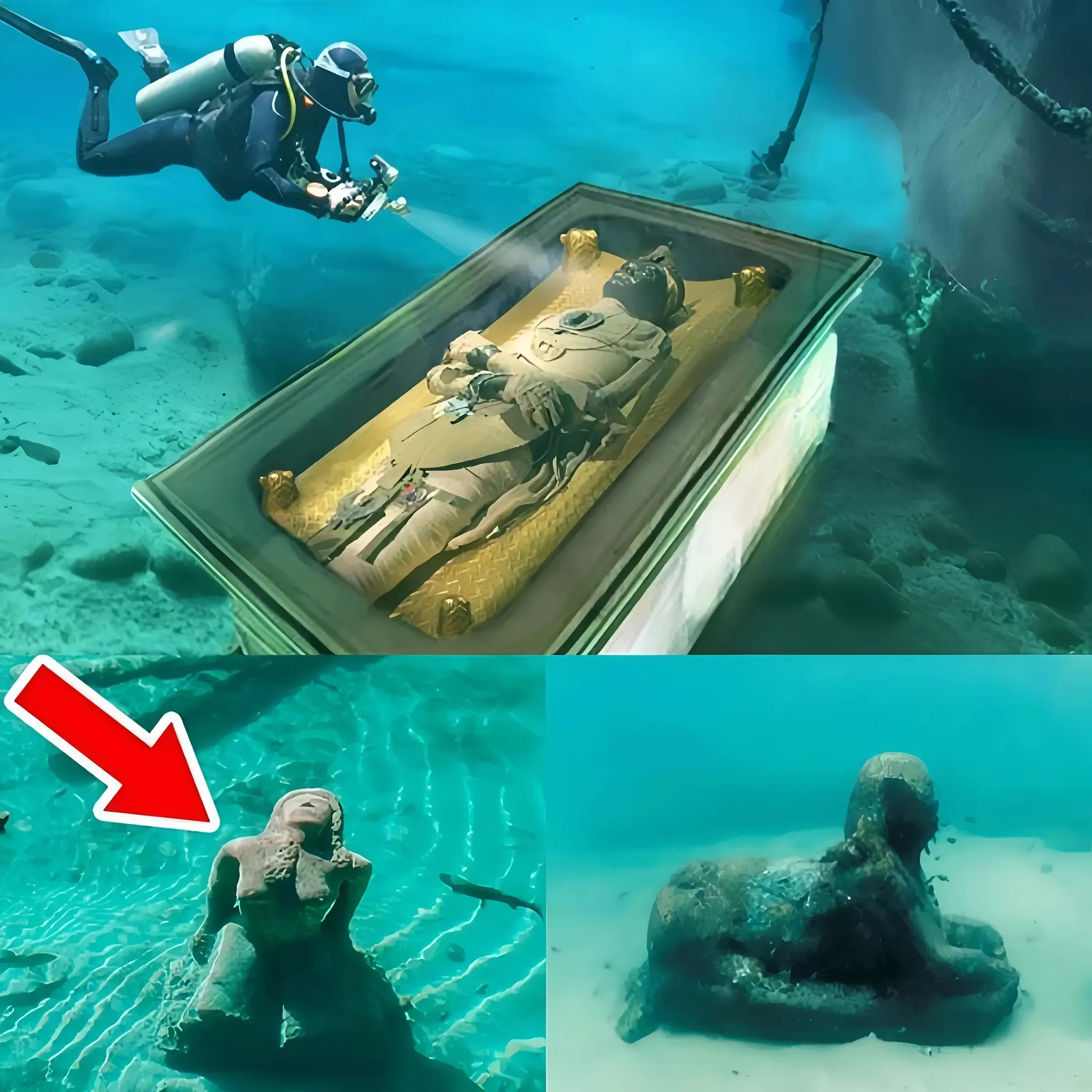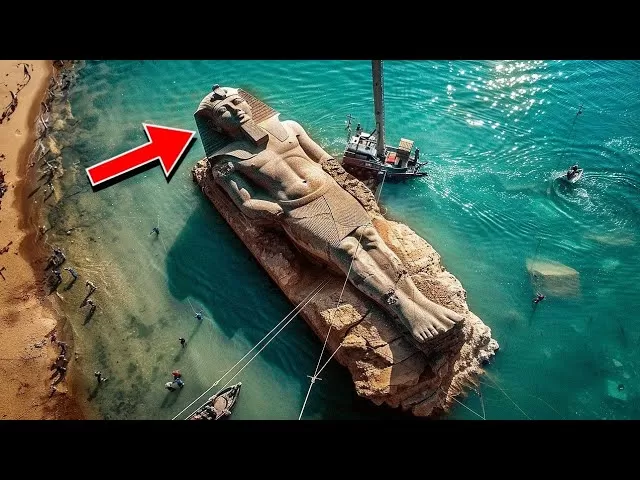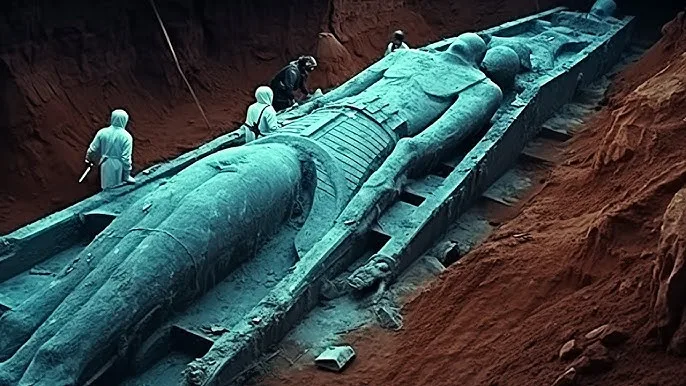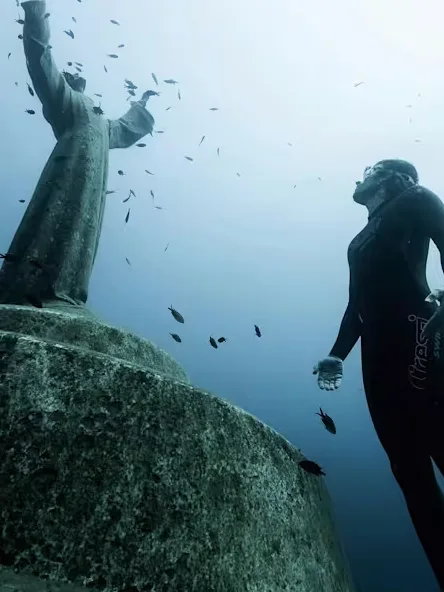The notion of uncovering an artifact linked to an Egyptian deity—such as the god Apis—hidden underwater for more than a millennium is both fascinating and shrouded in mystery. While there is no concrete historical record of such discoveries, the idea of submerged Egyptian relics is not entirely far-fetched, given past archaeological findings.
Ancient Egypt, one of the longest-lasting and most intricate civilizations in history, worshiped a vast pantheon of gods, many represented in human or animal forms. Apis, a sacred bull central to Egyptian religion, was revered for his connection to fertility, renewal, and resurrection. If relics associated with Apis were found beneath the water, they could provide groundbreaking insights into ancient Egyptian rituals and religious practices.

The God Apis: Symbolism and Significance
Apis was one of the most significant deities in ancient Egypt, often seen as a living embodiment of the god Ptah. Worshiped in Memphis, the Apis bull symbolized strength and divine power. Upon its death, the bull was ceremoniously mummified and buried in massive sarcophagi within the Serapeum of Memphis. A new bull would then be selected to continue the sacred lineage.

If an artifact or depiction of Apis were to be found submerged, it could indicate the role of water in Egyptian religious traditions—perhaps as a symbol of rebirth, purification, or transition to the afterlife.
Why Would Egyptian Artifacts Be Underwater?
The possibility of Egyptian deities or their relics being underwater for a thousand years can be attributed to several factors:
- Natural Disasters & Flooding – The Nile River’s shifting course, earthquakes, and other geological events may have submerged temples, statues, and sacred artifacts over centuries.
- Shipwrecks & Sunken Treasures – Ancient vessels carrying religious artifacts could have been lost at sea, leaving sacred relics preserved beneath the water.
- Water-Based Rituals – Some Egyptian religious practices involved immersing statues or artifacts in water for purification. If these rituals were performed in sacred lakes or along the Nile, some relics may have been unintentionally lost or deliberately placed in the water.
Other Egyptian Deities That Could Be Discovered

Beyond Apis, other prominent gods and goddesses may also be linked to underwater discoveries:
- Osiris – The god of resurrection and the afterlife, whose mythology includes being cast into the Nile before being reborn.
- Horus – The falcon-headed protector of pharaohs, often associated with sacred rivers and lakes.
- Bastet – The lioness-headed goddess of protection, closely linked to sun and water-based offerings.
What Would This Discovery Mean?
If an underwater discovery of Egyptian deities or related artifacts were made, it could have major implications:
- Rewriting Ancient Rituals – Shedding new light on how Egyptians used water in their religious ceremonies.
- Underwater Preservation Studies – Providing insight into how ancient relics survive in submerged environments.
- Cultural & Trade Connections – Potentially revealing unknown trade routes and interactions between Egypt and other civilizations.
Final Reflection

While still a hypothesis, the idea of uncovering submerged Egyptian deities opens the door to intriguing archaeological possibilities. Water, often seen as a symbol of renewal in ancient Egypt, may still hold untold secrets of this enigmatic civilization. Future underwater excavations in regions such as the Nile and the Mediterranean could reveal even more about Egypt’s spiritual and cultural history.


